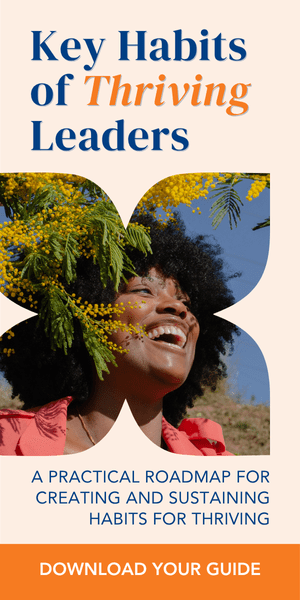This is an enormous question, and if you’re like me, the mere act of asking it creates energy—an enthusiasm that the question holds answers about for evolving how we live and lead, yet also an uneasiness that we have such a long way to go. Former American Psychological Association president Robert Sternberg once said, “If there is anything the world needs, it is wisdom.” I agree. Situations in our lives and organizations have become more and more complex, and as a result, we have the opportunity to respond with greater wisdom. But what does that really mean?
Dr. Roger Walsh, prolific author and professor of psychiatry at the University of California at Irvine, has explored this line of inquiry for decades. Instead of trying to find a single definition of wisdom, however, he draws from different cultures and disciplines to cultivate a more integral perspective.
In one of Walsh’ writings, he talks about practical wisdom, our “skillful benevolent responsiveness to the central existential issues of life.” These words speak volumes to me; I consider the stance of authentic leadership as a larger commitment to bring this kind of wisdom to the pushes and pulls and complexities of everyday decisions.
When Walsh says benevolent, he’s talking about our intentions. When we are benevolent, we seek to promote wellbeing not just for our selves (or our family, tribe, organization, country—that which we feels is “ours”); that would be selfishness. Yet our efforts aren’t just for the sake of benefitting others; that would be sacrifice, a forgetting that we’re part of the equation. To be guided by benevolence is to look for a balanced approach for the good of everyone concerned.
“For the good of everyone” is where I get uneasy. This can be quite a wide, and oftentimes overwhelming, scope. Yet here’s where real leadership comes in; we do our best with what we know—and we seek to fill in the gaps in what we don’t know—to guide our thinking and actions with benevolent intent. At the end of a strategic planning effort, a consumer goods leadership team I worked with years ago demonstrated this kind of leadership by asking before acting: How might these business strategies not only affect us today but also generations to come?
Skillful, Walsh says, involves applying benevolence to life’s situations with mastery. For example, in moments of high stress—budget cuts, layoffs, health challenges—when we’re most primed to have a knee-jerk reaction and a myopic point of view, we pause instead to take into account the larger context and nuances of the situation and the people in it. There are always limits to what we know, however; so while we are skillful, humility could also serve us well.
Practical wisdom is not something we acquire from the outside; we become wiser through a conscious, dedicated, lifelong relationship with living itself. It means reflecting on, being candid with, and transforming our selves. Only by knowing ourselves—our beliefs and capacities, fears and aspirations, places of greatest growth—can we respond from a position of skillful benevolence—our own practical wisdom—as leaders and as human beings.
*** With my deepest gratitude for the work of Dr. Walsh, please see his article in the 2015 Review of General Psychology here.
For coaching and training on wisdom, wellbeing, and leadership, contact me at renee@wisdom-works.com.
READ MORE
- Resentment: A Potent Medicine For Good
- Drive Cultural Transformation With Wellbeing Innovation
- Is The Planet Ready For A Different Way Of Leading?
- Ready To Boost Leader Effectiveness And Wisdom? Try Mindfulness!
- Success Means Taking Care Of What Enables You To Thrive
- Leading From Authenticity: Boosting Your Energy, Impact, and Wellbeing
- Wellbeing Leadership: Where Are YOU On This Journey?







